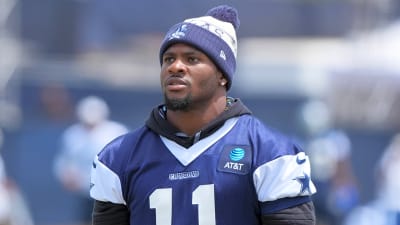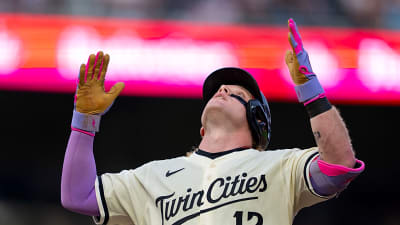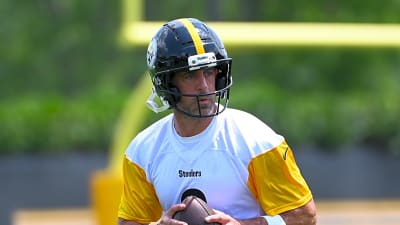
Bryce Harper, the Philadelphia Phillies’ own firebrand, decided it was time for MLB Commissioner Rob Manfred to exit stage left during what was supposed to be a routine clubhouse meeting last week. If anyone thought this was going to be a quiet exchange about the game’s “economics,” they clearly forgot who Harper is. Spoiler alert for the uninitiated: he’s not the “sit quietly in the back of the room” type.
During Manfred’s attempt to wax poetic about MLB’s finances to Phillies players, Harper, sitting with his signature mix of silence and intensity (and holding a bat because why wouldn’t he?), reportedly grew tired of the commissioner’s rhetoric. When the talk tilted dangerously close to a conversation about a potential salary cap, Harper didn’t mince words. “If you want to speak about that,” Harper allegedly said, “you can get the f— out of our clubhouse.” What caused this issue?
What Set Harper Off?
This wasn’t just about salary caps, although that topic alone is a perfect recipe for player outrage. For context, a salary cap in baseball is about as popular with players as pineapple on pizza at a New York pizza shop. It is one of the few major North American sports without one, and the MLB Players Association (MLBPA) has consistently, vehemently opposed it. To them, it screams “institutionalized collusion,” not a nifty way to level the playing field, as some team owners might argue.
Manfred, of course, didn’t explicitly use the term “salary cap,” but he did venture into that economic minefield. Whether intentional or not, he touched a nerve. Voices rose, tensions thickened, and Harper, channeling his inner baseball revolutionary, stood up to make his displeasure known.
But, credit where credit is due, Manfred didn’t back down. He replied bluntly, saying, “I’m not going to get the f— out of here.” Because what’s a good clubhouse drama without both sides throwing in some rated-R dialogue?
Nick Castellanos Saves the Day… Sort Of
Before things could escalate (because had this turned into a shouting match, who wouldn’t have wanted front-row seats?), teammate Nick Castellanos, the Phillies’ unofficial diplomat, stepped in to redirect the conversation. Rather than pouring gasoline on the fire, Castellanos started asking questions.
“It was pretty intense, definitely passionate,” Castellanos later told reporters. “That’s Harp. He’s been doing this since he was 15 years old. It’s just another day. I wasn’t surprised.” The meeting carried on, and cooler heads prevailed (sort of). Harper and Manfred shook hands afterward, but lest anyone think this was some kumbaya moment, Harper later ghosted Manfred’s phone calls. Guess there’s no “read receipts” for physical handshakes.
Why This Matters
Even seasoned baseball fans might scratch their heads here and ask, “Why does this even matter right now?” And that’s fair, given that the current collective bargaining agreement (CBA) is still in place until the end of 2026. But industry insiders aren’t naïve. Early rumblings of salary cap chatter are the kind of thing that can send shockwaves through locker rooms and union leaders’ offices alike.
A work stoppage isn’t just looming in a hypothetical sense. It is a ghost from the not-so-distant past. The 2022 MLB lockout left scars, delaying the season and reminding everyone how ugly these negotiations can get. Talk of a cap or a 2027 lockout is like casually bringing up divorce at a dinner party; it’s bound to kill the vibe.
Even Castellanos chimed in on this, equating Manfred’s mere mention of a lockout to saying, “I think divorce is a possibility. It’s probably going to happen.” That is a very comforting analogy.
The Bigger Picture
If there’s one thing to take away from this clubhouse theater, it is that Harper is fully cementing himself as one of MLBPA’s torchbearers. He is not just here to swing bats and sign autographs. No, Harper’s ready to throw himself fully into the grand ballgame of labor negotiations, one where franchise valuations and economic divides between high- and low-spending teams will be endlessly debated.
And make no mistake, the stakes are massive. The idea of a salary cap, which certain owners have not-so-subtly championed, divides the league like the Grand Canyon. Add in the fact that MLB’s revenues are ballooning (over $12 billion last year) and tensions over payroll disparities between teams like the Dodgers and the Marlins, and we’ve got ourselves a standoff brewing.
Harper may be unconventional, brash, and, at times, a bit too passionate. But, honestly, isn’t that what the MLB needs right now? A player willing to stand up and make the otherwise snoozy CBA negotiations feel alive. Well, alive and a tad dramatic.
Final Thoughts
Whether you see Harper’s actions as over-the-top or a necessary slap of realism, one thing’s for sure: this dude doesn’t hold back. And with labor talks already heating up (despite being years away), Harper’s voice will only grow louder when the inevitable battles over MLB’s future economics take center stage.
For now, though, Phillies fans can rest easy knowing their star is just as fiery off the field as he is on it. Manfred might want to think about carrying a fire extinguisher the next time he steps into Harper’s clubhouse. Heaven knows he might need it.
More must-reads:
- Pirates complete stunning collapse in 33-run barnburner
- Brewers star's injury worse than initially thought
- The '250-strikeout MLB seasons' quiz
Breaking News
Trending News
Customize Your Newsletter
 +
+
Get the latest news and rumors, customized to your favorite sports and teams. Emailed daily. Always free!








